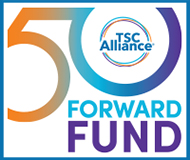
This research paper explores the complex issue of disclosing a tuberous sclerosis complex (TSC) diagnosis to romantic partners, focusing on the factors that influence individuals’ decisions to share this personal health information.
Research Question and Methods
- Main Question: The study aimed to understand the patterns of diagnosis disclosure among individuals with TSC to their romantic partners and identify the factors influencing these disclosure decisions. It also sought to understand the challenges individuals with TSC face in dating and relationships.
- Methods: Researchers surveyed independent adults diagnosed with TSC. The survey collected information on demographics, TSC features and impact, and experiences the respondent has had with regard to disclosure of his/her TSC diagnosis. Eligible participants were recruited through TSC Alliance social media platform posts and emails, and through the Tuberous Sclerosis Center of Excellence at the University of Texas Health Science Center at Houston during clinical visits or through email. The study analyzed responses from 117 participants after a rigorous data filtering process to ensure authenticity of responses.
Key Findings
- Prevalence of Disclosure: Of participants who had been in atleast one relationship since receiving their TSC diagnosis, a significant majority (96%) of participants disclosed their TSC to at least one partner, and 71% disclosed to all partners.
- Factors Influencing Disclosure:
- Ethical Obligation: The most commonly agreed-upon factor for disclosure was an ethical obligation (81%).
- Fear of Rejection: Conversely, the most agreed-upon factor for non-disclosure was the fear of rejection (69%).
- Number of Relationships: Individuals with more relationships tended to disclose the TSC diagnosis less frequently.
- Time Since Diagnosis: The longer someone had lived with a TSC diagnosis, the faster they disclosed it to partners after beginning a relationship.
- Specific TSC Features: Individuals with depression were more likely to disclose frequently, while those with a history of seizures or ADHD were less likely to disclose to all partners. Skin features, like ungual fibromas, were also associated with challenges in dating and disclosure.
- Challenges in Dating: Most participants found disclosing their diagnosis challenging, and a significant portion felt TSC affected their desire to date and was a barrier to dating (70%).
Practical Implications
These findings highlight the critical need for better support and guidance for individuals, especially young adults, with TSC regarding disclosure in romantic relationships. Clinicians, including genetic counselors and therapists, should proactively discuss this topic with patients, especially those in their mid-20s to mid-30s, those with certain clinical features, such as ungual fibromas, or those experiencing seizures or ADHD. Providing resources and fostering peer connections can help individuals navigate these complex conversations, potentially improving their disease management and overall quality of life.
Lead author: Kate Richardson, MS, CGC. Department of Pediatrics; McGovern Medical School; 6431 Fannin Street; Houston, TX 77030.
Link to paper:
Free access till 10.2.25:
